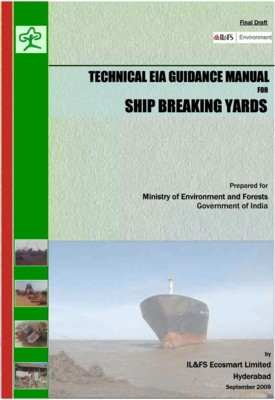/topics/public-infrastructure-and-services
Public Infrastructure and Services
In India, water problems are 'man made': Comments on the draft water policy-2012
Posted on 29 Feb, 2012 11:02 AMAuthor : Nagesh Hegde
Success of first participatory irrigation development & management programme and its further extension in Maharashtra
Posted on 27 Feb, 2012 11:33 AMAuthor : Ulhas Krishna Apte
Ignoring precaution, MoEF clears a project which has been categorically rejected by majority Standing Committee of the NBWL
Posted on 26 Feb, 2012 01:31 PMGuest Post : Parineeta Dandekar and Himanshu Thakkar
Small hydro: Too small for a national mission - The need for an assimilated national mission for renewable energy in India
Posted on 24 Feb, 2012 10:58 AM
Small hydropower plant (Source: Ministry of New and Renewable Energy)
Trends in private sector participation in the Indian water sector: A critical review - A Water and Sanitation Programme publication
Posted on 23 Feb, 2012 05:54 PMThe study also analyses the direction in which the sector is heading with respect to private sector participation. Since most PPPs are at early stages of operation, this study focuses only on learnings from PPP design and transaction. This study does not seek to assess the operating or financial performance of PPPs.
"In search of old ideas" - A discussion of the draft national water policy 2012, by Jayanta Bandopadhyay in The Telegraph
Posted on 22 Feb, 2012 05:05 PMAuthor: Jayanta Bandopadhyay
Article and image courtesy: The Telegraph
New water policy more contentious; least helpful in tackling existing issues
Posted on 22 Feb, 2012 12:34 PMAuthor : Dr. Arvind Kumar
Towards greener development: EIA sector specific manuals brought out by the Ministry of Environment and Forests
Posted on 19 Feb, 2012 07:20 PMThese manuals are aimed at expert appraisal committees, and hope to improve the quality of appraisal of projects. These will also provide a template for use by organisations and consultants developing the EIA reports.
"Water management in Mumbai: Prospects and challenges" - Videos from a round table organised by Observer Research Foundation
Posted on 16 Feb, 2012 03:51 PMThese four films include details of speeches made by the Municipal Commissioner of Brihan Mumbai Municipal Corporation (BMC), Mr Swadhin Kshatriya, who delivered a valedictory speech and Mr Sandeep Acharya, senior journalist from Loksatta, who expressed his views on the water crisis in Mumbai, as a part of a round table organised by Observer Research Foundation (ORF), on "Water management in Mumbai: Prospects and challenges", on the 10th of January 2010.





